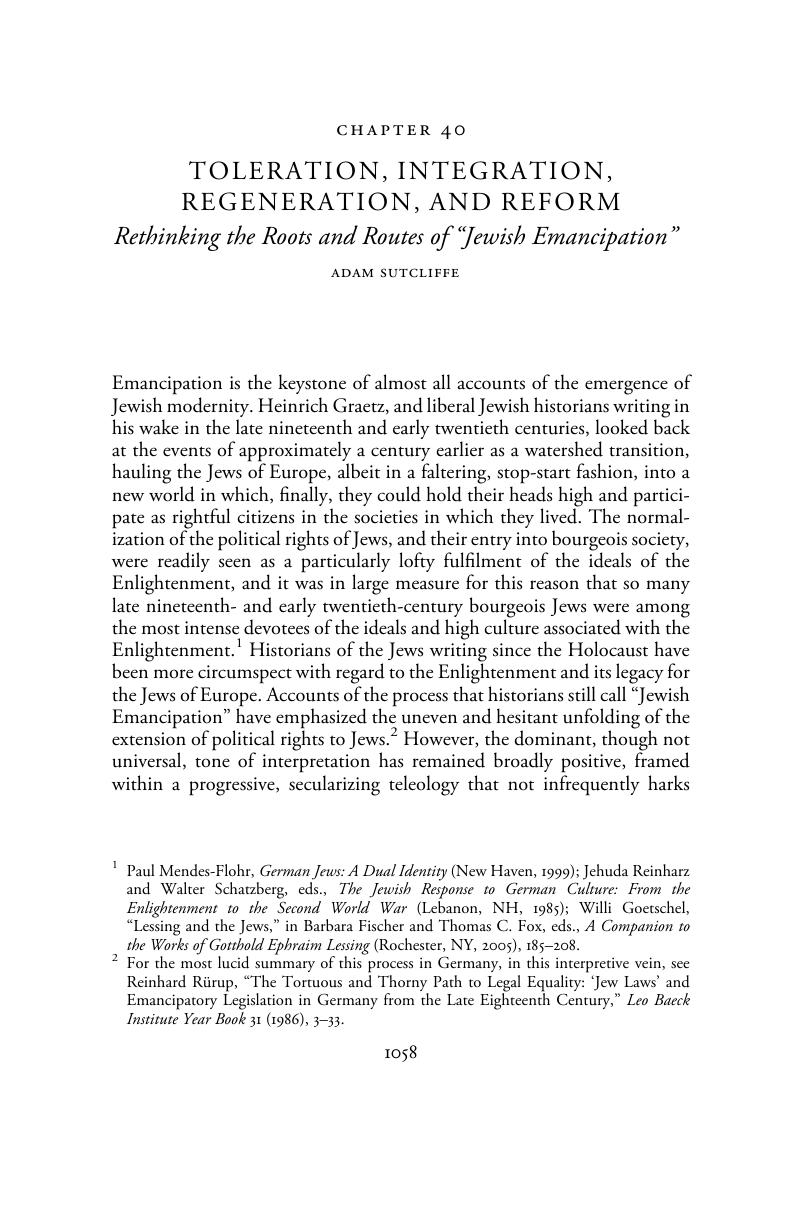Book contents
- The Cambridge History of Judaism
- The Cambridge History of Judaism
- The Early Modern World, 1500–1815
- Copyright page
- Dedication
- Contents
- Figures
- Additional material
- Introduction
- Part I The World of Early Modern Jewry, c. 1500–1650
- Part II Themes and Trends in Early Modern Jewish Life
- Part III The Jewish World, c. 1650–1815
- Chapter 28 Judaism in Germany (1650–1815)
- Chapter 29 The Making of Habsburg Jewry in the Long Eighteenth Century
- Chapter 30 The Jews of Poland–Lithuania (1650–1815)
- Chapter 31 Jews in the Ottoman Empire (1580–1839)
- Chapter 32 The Jews of Italy (1650–1815)
- Chapter 33 Locals
- Chapter 34 The Jews of France (1650–1815)
- Chapter 35 The Jews of Great Britain (1650–1815)
- Chapter 36 The Jews in the Early Modern Caribbean and the Atlantic World
- Chapter 37 The Jews in Early North America
- Chapter 38 The Jews of Africa and Asia (1500–1815)
- Chapter 39 The Jews of Iran in the Seventeenth and Eighteenth Centuries
- Chapter 40 Toleration, Integration, Regeneration, and Reform
- Chapter 41 Looking Backward and Forward
- Index
- References
Chapter 40 - Toleration, Integration, Regeneration, and Reform
Rethinking the Roots and Routes of “Jewish Emancipation”
from Part III - The Jewish World, c. 1650–1815
Published online by Cambridge University Press: 10 November 2017
- The Cambridge History of Judaism
- The Cambridge History of Judaism
- The Early Modern World, 1500–1815
- Copyright page
- Dedication
- Contents
- Figures
- Additional material
- Introduction
- Part I The World of Early Modern Jewry, c. 1500–1650
- Part II Themes and Trends in Early Modern Jewish Life
- Part III The Jewish World, c. 1650–1815
- Chapter 28 Judaism in Germany (1650–1815)
- Chapter 29 The Making of Habsburg Jewry in the Long Eighteenth Century
- Chapter 30 The Jews of Poland–Lithuania (1650–1815)
- Chapter 31 Jews in the Ottoman Empire (1580–1839)
- Chapter 32 The Jews of Italy (1650–1815)
- Chapter 33 Locals
- Chapter 34 The Jews of France (1650–1815)
- Chapter 35 The Jews of Great Britain (1650–1815)
- Chapter 36 The Jews in the Early Modern Caribbean and the Atlantic World
- Chapter 37 The Jews in Early North America
- Chapter 38 The Jews of Africa and Asia (1500–1815)
- Chapter 39 The Jews of Iran in the Seventeenth and Eighteenth Centuries
- Chapter 40 Toleration, Integration, Regeneration, and Reform
- Chapter 41 Looking Backward and Forward
- Index
- References
Summary

- Type
- Chapter
- Information
- The Cambridge History of Judaism , pp. 1058 - 1088Publisher: Cambridge University PressPrint publication year: 2017



